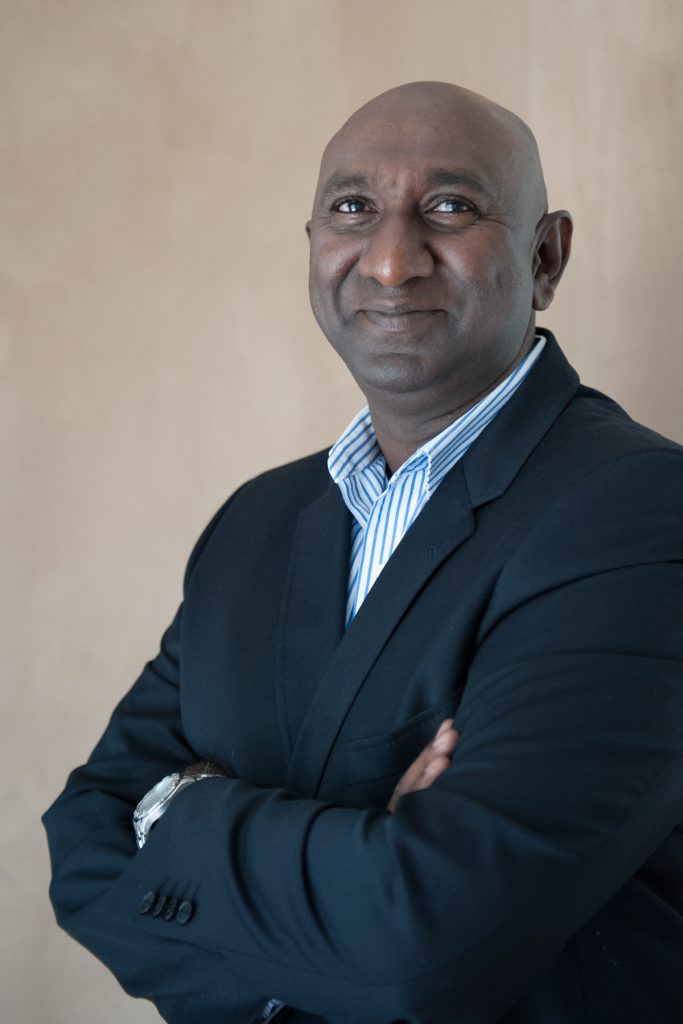Get to Know: Rufus Andrew, Business Development Director, Africa at Corning International.
What would you describe as your most memorable achievement?
Seeing the colleagues in the industry that I have mentored from a junior level rise all the way to C-level positions. I find this very rewarding and a meaningful process of adding value on the human side of the business.
What first made you think of a career in technology?
I had a few choices of what to study and eventually decided on electronic engineering as I was very interested in the field and wanted to explore the role that technology plays in the artistic and entertainment side of media. I was very fortunate to have landed my first job with a broadcaster. That is how it all started. And at a certain point of my career I felt that the impact of my work would be bigger if I dedicate my knowledge and abilities to the side of the business related to life changing technologies and innovation. I made a transition, and this become my work path that lead me to Corning, where I fully experienced the potential and impact of the business to improve the way we live.
What style of management philosophy do you employ with your current position?
Being with a multi-national and operating within a global matrix organisation, I must be extremely cognisant, tolerant of diversity, flexible and result driven. Focusing on building and managing relationships with the individuals you work with, are key to getting results. I am fortunate that this is very much a part of the global corporate culture of my current organisation.
What do you think is the current hot technology talking point?
I have to say ‘Big Data’, which encompasses many different hot topics such as IoT, Artificial Intelligence and 5G, Augmented Reality. Today, we are dealing with a completely different business environment and technology is a key element of it. We don’t anymore only about physical infrastructure, but also about virtual one that comes with its own requirements and needs. Companies like Corning are enabling us to enter that vestural, digital age, with all its opportunities – a smart connectivity and the transformation of the economy. And all these trends come together to change the way we plan and do business and even to change the way we are living. Smart homes, integration of applications, cars that are communicating with us, content on demand, life streaming – all these features are available to us due to the ‘invisible’ for us technologies that supports them.

How do you deal with stress and unwind outside the office?
Chilling with the family. We try and do one major vacation a year otherwise our activities are spontaneous. I am also still a novice golfer and a musician that does the odd small gigs.
If you could go back and change one career decision what would it be?
I would have opted for more international stints much earlier in my career, purely for the experience and exposure.
What do you currently identify as the major areas of investment in your industry?
As mentioned, there are distinctive trends – IoT, 5G, Artificial Intelligence and Augmented Reality. All those areas are part of a major shift in the way we work and live that is only possible because we have reached certain scientific and technological level. Establishing the network infrastructure to be able to facilitate these developments is a key focus currently – especially in Africa and I am happy to be part of a company that makes this possible.
What are the region-specific challenges when implementing new technologies in Africa?
The implementation of new technologies is normally related to challenges. When a technology is new, that is already a prerequisite for unexpected developments. Any new technology that is about to be deployed will require new skills, new approaches, understanding of its specifics, training, knowledge and transfer. To bring complex technological solutions to life is also related with compliances, integration of systems and other strictly technological process that are taking place as well as with legislation frame alignment. When it comes to Africa, maybe there are three main challenges I should outline.
- Regulatory frameworks are quite slow in certain African countries holding back investment in technology deployment
- Huge disparity in the availability of skills across the different countries
- Africa is often at the tail end of investment decisions and hence financing for capital intensive technology projects is often a huge challenge
Some of the challenges are circumstantial and they provide ground for top-end collaborations on national level with the national governments. Others are matter of planning, training and knowledge exchange. I would say that when the topics of complex technological development are considered it is better to think of that as a long-term process and investment in the future.
What changes to your job role have you seen in the last year and how do you see these developing in the next 12 months?
Our work environment is becoming more virtual, more global and more flexible. Unless you are in a work environment where it is the absolute nature of your role, the days of the 9 to 5 office bound workers are fast coming to an end. The workforce teams are also becoming increasing global in nature, with virtual team members spread across the world.
What advice would you offer somebody aspiring to obtain C-level position in your industry?
Be patient – work hard, have hunger to learn, focus on consistent above average delivery, and at the right time, you would naturally get there.
Click below to share this article

